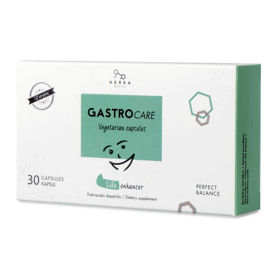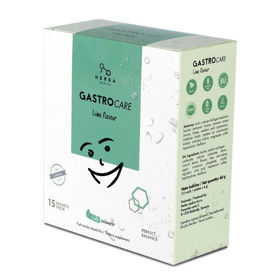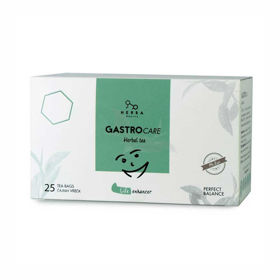Vprašanje stranke:
Kako prepoznati simptome gastritisa? Vprašanje anonimne stranke
Odgovor farmacevta:
Gastritis je vnetje želodčne sluznice, ki lahko poteka akutno ali kronično. Simptomi se lahko razlikujejo glede na obliko in resnost vnetja. Spodaj so podrobno opisani najpogostejši simptomi, dejavniki tveganja in možnosti zdravljenja gastritisa:
- Bolečina v trebuhu: najpogostejši simptom gastritisa je bolečina v zgornjem delu trebuha. Bolečina je pogosto opisana kot pekoča ali grizljajoča in se lahko poslabša ali izboljša po jedi.
- Slabost in bruhanje: bolniki z gastritisom pogosto poročajo o občutku slabosti. V hujših primerih lahko pride tudi do bruhanja, ki je lahko krvavo ali vsebuje material, podoben kavni usedlini, kar kaže na prisotnost krvi.
- Napihnjenost: pogost občutek napihnjenosti ali napetosti v trebuhu, ki ga spremljajo spahovanje in plini.
- Izguba apetita: gastritis lahko povzroči zmanjšan apetit, kar vodi do nenamerne izgube telesne teže.
- Zgaga: pekoč občutek v prsih, ki se pogosto poslabša po jedi, je lahko tudi simptom gastritisa.
- Temno blato: blato, ki je črno ali katranasto, lahko kaže na prisotnost krvi v prebavnem traktu, kar je znak resnejšega gastritisa.
- Splošna utrujenost: dolgotrajni gastritis lahko privede do kronične utrujenosti zaradi slabše absorpcije hranil.
Gastritis je vnetje želodčne sluznice, ki se nakazuje z bolečino v trebuhu, slabostjo, napihnjenostjo, zgago in izgubo apetita. Najpogostejši vzroki vključujejo okužbo z bakterijo Helicobacter pylori, dolgotrajno uporabo nesteroidnih protivnetnih zdravil, prekomerno uživanje alkohola in stres. Diagnoza temelji na anamnezi, fizičnem pregledu, endoskopiji in laboratorijskih testih. Zdravljenje vključuje antibiotike, zaviralce protonske črpalke, antacide, H2-blokatorje in spremembe življenjskega sloga.
Ali so simptomi gastritisa vedno opazni?
Simptomi gastritisa niso vedno opazni. Nekateri ljudje z gastritisom lahko nimajo nobenih simptomov ali pa so simptomi tako blagi, da jih ni mogoče takoj opaziti. Asimptomatski gastritis je precej pogost, zlasti pri kroničnem gastritisu, ki se lahko razvija počasi in ne povzroča takojšnjih ali očitnih težav. Ker simptomi niso vedno opazni, se gastritis pogosto odkrije po naključju med preiskavami za druge zdravstvene težave.
Ali so simptomi za gastritis nevarni?
Simptomi gastritisa niso vedno nevarni, vendar lahko v nekaterih primerih nakazujejo resnejše zdravstvene težave, ki zahtevajo zdravniško obravnavo. Bolečina v zgornjem delu trebuha, slabost, bruhanje, napihnjenost, izguba apetita, zgaga, temno blato in splošna utrujenost so najpogostejši simptomi gastritisa. Čeprav so ti simptomi običajno neprijetni, sami po sebi niso nujno nevarni.
Kljub temu pa lahko nekateri simptomi nakazujejo na resnejše težave. Na primer, temno ali katranasto blato in bruhanje krvi ali materiala, podobnega kavni usedlini, lahko nakazuje na prisotnost krvavitve v želodcu ali prebavilih. To stanje zahteva takojšnjo zdravniško pomoč. Kronični gastritis, ki ni ustrezno zdravljen, lahko vodi do zapletov, kot so želodčne razjede, želodčna krvavitev in povečano tveganje za razvoj raka na želodcu.
Če simptomi gastritisa trajajo dlje časa, so zelo intenzivni ali se pojavijo skupaj z drugimi simptomi, kot so nepojasnjena izguba telesne teže, težave pri požiranju ali huda bolečina v trebuhu, je pomembno poiskati zdravniško pomoč. Pravočasna diagnoza in zdravljenje lahko preprečita zaplete in izboljšata kakovost življenja.
Ali bolečina zaradi gastritisa potrebuje nujno medicinsko pomoč?
Bolečina zaradi gastritisa običajno ne rezultira v urgetni potrebi po nujni medicinski pomoči, vendar obstajajo določeni primeri, ko je potrebna takojšnja zdravniška obravnava. Čeprav je bolečina v zgornjem delu trebuha pogost simptom gastritisa, je pomembno prepoznati znake, ki lahko nakazujejo resnejše stanje ali zaplete. Če imate kronično ali ponavljajočo se bolečino v zgornjem delu trebuha, ki jo spremljajo blagi simptomi gastritisa, je priporočljivo obiskati zdravnika za pregled in morebitno zdravljenje. Pravočasna diagnoza in ustrezno zdravljenje lahko preprečita poslabšanje stanja in razvoj zapletov. Za akutne in hude simptome pa je nujna takojšnja medicinska pomoč, da se izključijo resnejša stanja in zagotovi ustrezno zdravljenje.
Zanimivo branje: Stresni gastritis simptomi








 Facebook
Facebook
 Instagram
Instagram
 info@moja-lekarna.com
info@moja-lekarna.com

